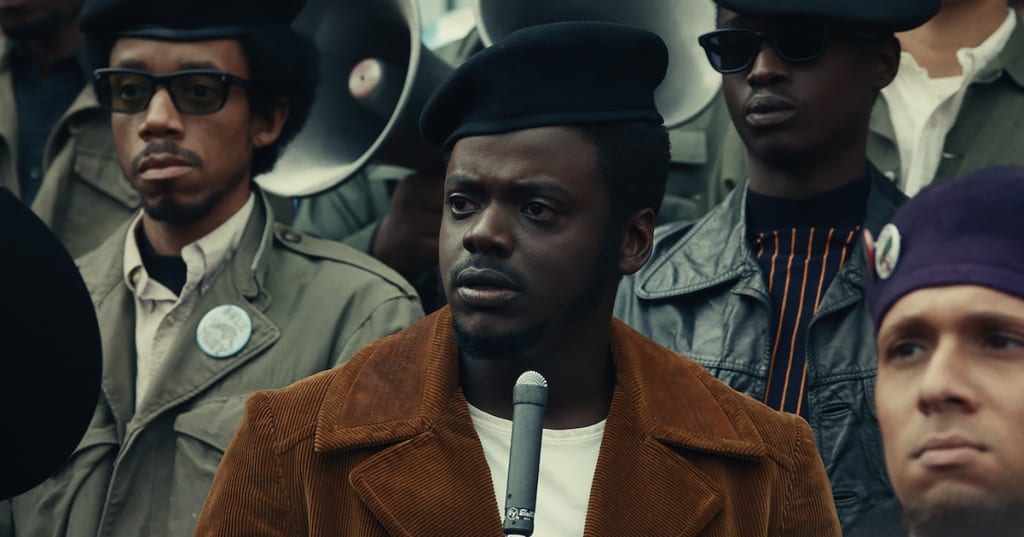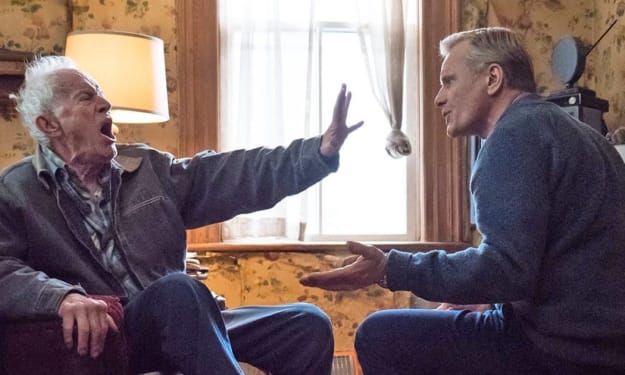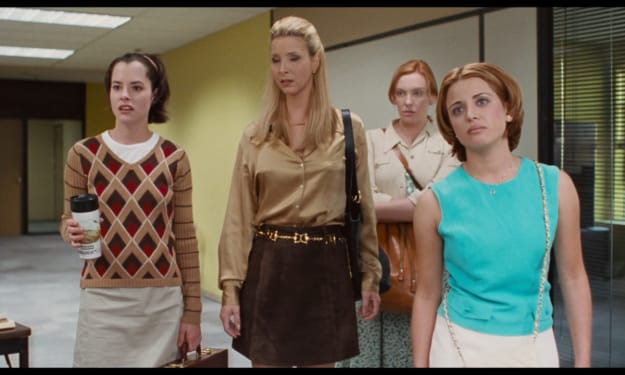‘Judas and the Black Messiah’ Redefines the Black Panther Party
Long live Fred Hampton

READ THE REVIEW ON OUR WEBSITE: https://moviebabble.com/2021/02/17/judas-and-the-black-messiah-redefines-the-black-panther-party/
...
Admitting you don’t know something is hard. Especially in a time when so much information is readily available. Admitting your ignorance can leave you feeling on the outside of the pseudointellectual social media landscape. An environment that often rewards acting as if know you over actually knowing or desiring to learn. However, it is the awareness (and subsequent exploration) of what one does not know that I find to be much more powerful. I say all that as a precursor to what is a bit of a shameful admission, especially as a history teacher. Heading into director Shaka King’s newest film, Judas and the Black Messiah, I knew little about Chairman Fred Hampton and the Black Panther Party.
My ignorance can be attributed more to misinformation, caused by either a lack of Black role models or the failure of public education. My knowledge of the Black Panthers was limited to the false depiction painted of the organization by white people. As the incredibly problematic saying goes, “history is written by the victors”. In the case of Chairman Fred Hampton and the Black Panther Party, they have been almost effectively written out of our history. Which is not too different from many other important groups and people that dare defy the American concept of democracy and equality. Enter Judas and the Black Messiah, a film that does as much as any film that I can remember to redefine an important historical figure and/or group.
A Historical Lesson
Judas and the Black Messiah is less biopic or crime drama than it is a historical lesson. Not in the same way as a documentary can be, but it does a similar job in redefining the Black Panthers. Shaka King, who shares writing and story credit with Will Benson, Kenneth Lucas, and Keith Lucas, frames this story around a simple conceit. Petty car thief, William O’Neal (LaKeith Stanfield), becomes an FBI informant and infiltrates the Illinois chapter of the Black Panther Party. His infiltration of the Party allows him access to the inner workings of it and Chairman Fred Hampton himself. Framing the story through this, allows a familiar style to follow, while allowing for an effective way to showcase what the Black Panther Party is really about.
William O’Neal takes us behind the guns, leather jackets, and afros, that have long defined the organization, and shows us the hands-on approach to their community. We are in the meetings led by Chairman Fred Hampton while building his “rainbow coalition”. We even get to see the Party struggle while the Chairman is in jail. This is how the redefining I keep mentioning happens.
Shaka King shows us what The Black Panther Party is really about by showing their actions, their platform, and the meaning behind everything they do. He is not positioning the Party in a way as to lead us to a certain conclusion. He simply presents them for what they really are, which allows us to come to our own conclusions. By doing that, the film also allows for conversations about socialism versus capitalism, civil rights, and police brutality. A holistic presentation of the Black Panther Party redefines their history, while also giving insight into our future.
Redefining Fred Hampton
That redefining extends past the Party and to Chairman Fred Hampton himself. A true revolutionary and American hero that has been tragically written out of history. Judas and the Black Messiah is as much a film about the Chairman as it is anything else. In a performance in which there are no proper adjectives to describe its greatness, Daniel Kaluuya brings Chairman Fred Hampton to life. We see the leader of a revolutionary movement, the larger-than-life figure, the sweet lover. We’re also shown the unique man who is able to speak to all people, inspiring them to seek revolutionary change. Kaluuya captures all this perfectly. He does for Fred Hampton what Will Smith did for Muhammad Ali and Denzel Washington did for Malcolm X. That extends his legacy for generations to come.
Kaluuya is able to do this by so wonderfully encapsulating the complexities and his essence. While his passionate speeches and magnetic charisma are one (very memorable) side of him, the depth and fullness of his character come in the quieter moments. The sweet moments between him and Deborah Johnson (played beautifully by Dominique Fishback), add a tender side that is easily lost on figures this big. His measured and thoughtful presence when he is just talking to someone in a room or a meeting, presents him as a respectful man.
Kaluuya brings him to life with subtle facial expressions and a physicality that demonstrates a command of the room. It’s also the thoughtfulness of a man who truly wants to listen to what others have to say. It’s reductive to merely say that this is Kaluuya’s best work. Simply because what he does in this film is far more important. By capturing who Fred Hampton was, he gives back a beautiful legacy that was largely taken away from him.
About the Creator
MovieBabble
The Casual Way to Discuss Movies! Head over to moviebabble.com to see all our content!






Comments
There are no comments for this story
Be the first to respond and start the conversation.